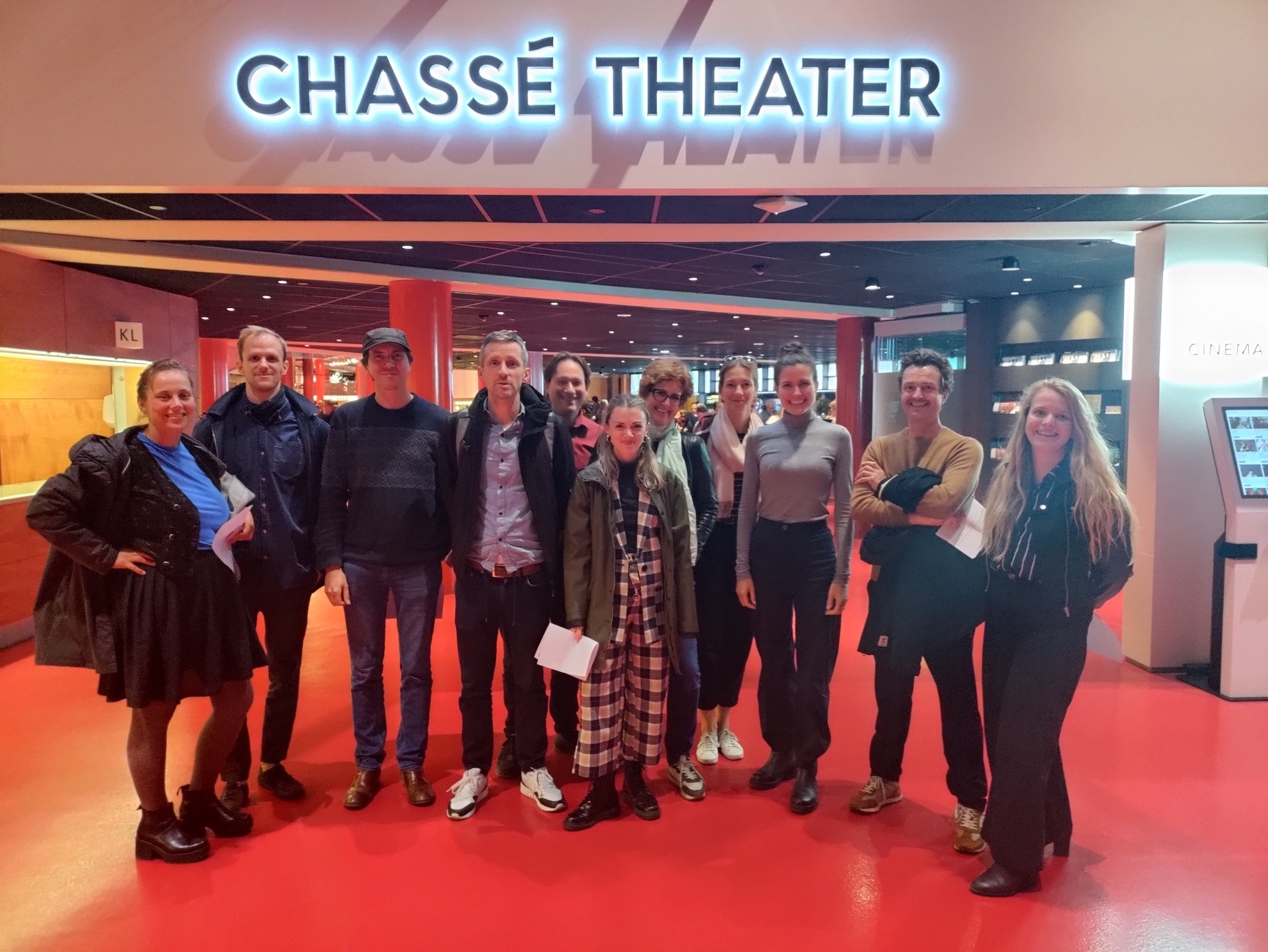In September 2022, the CONTRA team attended a dance opera by choreographer and theatre maker Nicole Beutler in the Dutch city of Breda, titled ‘Ginkgo or: 56 million years ago there were palm trees on the North Pole’. The caption ‘A farewell to the world as we know it’ already reveals that the performance offers a bleak view of our future and the role of humans in the demise of our planet.
This opera is the first part of a trilogy called Rituals of Transformations. It shows five performers living and dancing on the waste of society, accompanied by, on the one hand, apocalyptic but riveting techno beats and, on the other hand, the compelling voices of the local choir Consensus Vocalis. Leading is a master of ceremony, dressed in white, playing the theremin while exclaiming goodbye to the world we knew and how humans lived.
It’s not the first time Beutler produced a performance with a clear link to climate change. Her previous performance 8:METAMORPHOSIS, for example, focused onthe demise of patriarchal structures, with the climate crisis as a backdrop. With her new dance opera, Beutler uses theatre and dance to study how people deal with climate change and how, if at all, we can find a new balance between the earth, humans, animals, and objects.
Beutler is not the first artist to do this and will not be the last. Lately, small and big cultural venues make room for theatre, plays, and performances that deal with climate change in one way or another. We also see a lot of exhibitions and artistic practices related to climate change. Recently different cities hosted small festivals where art, theatre and climate change came together, such as ‘The climate festival’ in Antwerp and ‘We are warming up’ in Amsterdam.
This focus on climate change by artists and performers is of great interest to us, the researchers working on the CONTRA project. The CONTRA project focuses on better understanding productive conflict in urban transformations, specifically regarding climate change. At the same time, the project aims to propose innovative ways of dealing with productive conflict through theatre-based methods.
In line with the work of Beutler and others, we want to examine if theatre can evoke a way of broadening perspectives and help us unveil new questions. Theatre might create a dialogue between groups who do not have the words to talk to each other, for example, while also voicing concerns or issues that otherwise might not be addressed. Together with local theatre makers, each partner of the CONTRA consortium will examine in their own countries (Belgium, the Netherlands, Poland and Norway) if and how theatre methods can be used to deal with conflict productively on climate change issues.
Theatre, and art in general, will not save the world. Even though we suspect theatre can contribute to dealing with conflict in a productive manner, we are also critical. The instrumental value of theatre in getting from destructive to productive conflict should not be taken for granted. It might, however, be a way of knowing how conflict evolves on such a polarizing topic as climate change.
With her performance, Beutler wants to alarm and unsettle us while at the same time offering a place for hope and perspective. With a stage full of trash, this dance opera ends with a single ray of light beaming on a small ginkgo tree. Known for its survivability, this tree symbolizes that there might still be hope after all. Theatre can also give hope: in unsettling times, keeping hope while not being blind for everything that is happening around us and taking responsibility for it.
Text by Lisa De Roeck








No responses yet